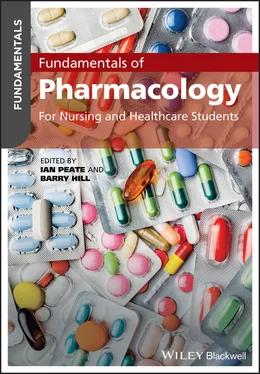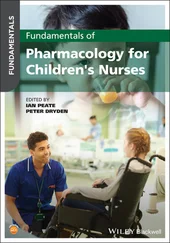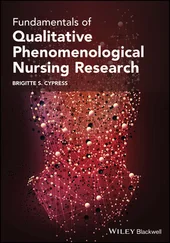Discussing with patients their experiences of medicines use – for example, their views about what medicines mean to them, how medicines impact on their daily life, whether or not they are able to take their medicines – is a prerequisite that is demonstrated when promoting medicine optimisation.
Medicines are used more than any other intervention by patients as they strive to manage their medical conditions. The number of medicines prescribed, as well as the complexity of the medicines regimens that patients take, are and will continue to increase.
Nurses are involved in the management of medicines in almost every practice setting. Medicines management includes the safe and cost‐effective use of medicines in clinical practice, with greatest patient benefits, while at the same time minimising potential harm. It is essential that nurses have knowledge of the regulatory, professional, and legal and ethical frameworks that oversee the prescribing, storage, administration, and safe disposal of drugs and ensure they comply with them. The nurse must have a sound understanding of the wider field of therapeutic pharmacology, a key aspect of clinical practice aiming to provide safe and effective care through a sound understanding of how the use of drugs cause action and effect.
AutonomyIs concerned with self‐determination and is a person's ability to make choices on the basis of that person's own preferences, beliefs and values. CapacityAn ability to understand, deliberate and communicate a choice in relation to a specific healthcare decision at a particular time. CompetenceThe achievement and application of knowledge, intellectual capacities, practice skills, integrity, and professional and ethical values needed for safe, accountable, compassionate, and effective practice as a registered practitioner. ComplianceMedication compliance refers to the degree or extent of conformity to the recommendations about day‐to‐day treatment by the healthcare provider with regards to timing, dosage and frequency. ConductA person's moral practices, actions, beliefs and standards of behaviour. Evidence‐based practiceThe conscious consideration and the application of the best available evidence along with the healthcare provider's expertise and a person's values and preferences in making healthcare decisions. GuidanceA principle or criterion that guides or directs action. Guideline development emphasises using clear evidence from the existing literature, as opposed to expert opinion alone, as the basis for advisor materials. Health and wellbeingA state of complete physical, social and mental wellbeing; not just the absence of disease or infirmity. It is a positive concept that emphasises personal resources as well as physical capabilities. RegulationsA rule or law designed to control or govern conduct. StandardsAuthoritative statements developed, monitored and enforced by, for example, healthcare regulators to describe the responsibilities and conduct expected of registrants. The standards are based on the principles and that underpin professional practice. TherapeuticRelating to therapeutics, the branch of medicine concerned specifically with the treatment of disease. The therapeutic dose of a drug is the amount needed to treat a disease.
1 Ballantyne, H. (2015). Developing nursing care plans. Nursing Standard 30 (26): 51–57.
2 Care Quality Commission (2018). Learning from safety incidents. https://www.cqc.org.uk/guidance‐providers/learning‐safety‐incidents(accessed September 2020).
3 Clyne, B., Cooper, J.A., Boland, F. et al. (2017). Beliefs about prescribed medication among older patients with polypharmacy: a mixed methods study in primary care. https://bjgp.org/content/67/660/e507(accessed September 2020).
4 Higher Education England (2017). Advisory guidance. administration of medicines by nursing associates. https://www.hee.nhs.uk/sites/default/files/documents/Advisory%20guidance%20‐%20administration%20of%20medicines%20by%20nursing%20associates.pdf(accessed September 2020).
5 Hjorthøj, C., Stürup, A.E., McGrath, J.J. et al. (2017). Years of potential life lost and life expectancy in schizophrenia: a systematic review and meta‐analysis. Lancet Psychiatry 4 (4): 295–301.
6 Mårdby, A., Åkerlind, I., and Hedenrud, T. (2009). General beliefs about medicines among doctors and nurses in out‐patient care: a cross‐sectional study. BMC Family Practice 18 (10): 35. doi: 10.1186/1471‐2296‐10‐35.
7 Mental Health Foundation (2016). Fundamental health facts about mental health 2016. https://www.mentalhealth.org.uk/sites/default/files/fundamental‐facts‐about‐mental‐health‐2016.pdf(accessed September 2020).
8 National Institute for Health and Care Excellence (2014). Managing medicines in care homes. https://www.nice.org.uk/guidance/sc1/evidence/full‐guideline‐pdf‐2301173677(accessed September 2020).
9 National Institute for Health and Care Excellence (2015). Medicines optimisation: the safe and effective use of medicines to enable the best possible outcomes. www.nice.org.uk/guidance/ng5/resources/medicines‐optimisation‐the‐safe‐and‐effective‐use‐of‐medicines‐to‐enable‐the‐best‐possible‐outcomes‐pdf‐51041805253(accessed September 2020).
10 National Institute for Health and Care Excellence (2017). Managing medicines for adults receiving social care in the community. www.nice.org.uk/guidance/ng67(accessed September 2020).
11 Neame, R. and Hammond, A. (2005). Beliefs about medications: a questionnaire survey of people with rheumatoid arthritis. Rheumatology 44 (6): 762–767.
12 Nursing and Midwifery Council (2010). Standards for medicines management. https://www.nmc.org.uk/standards/standards‐for‐post‐registration/standards‐for‐medicines‐management/(accessed September 2020).
13 Nursing and Midwifery Council (2017). Revalidation. https://www.nmc.org.uk/globalassets/sitedocuments/revalidation/how‐to‐revalidate‐booklet.pdf(accessed September 2020).
14 Nursing and Midwifery Council (2018a). The Code: Professional standards of practice and behaviour for nurses, midwives and nursing associates. https://www.nmc.org.uk/standards/code/(accessed September 2020).
15 Nursing and Midwifery Council (2018b). Standards of proficiency for registered nurses. https://www.nmc.org.uk/globalassets/sitedocuments/education‐standards/future‐nurse‐proficiencies.pdf(accessed September 2020).
16 Nursing and Midwifery Council (2018c). Standards of proficiency for nursing associates. https://www.nmc.org.uk/globalassets/sitedocuments/education‐standards/nursing‐associates‐proficiency‐standards.pdf(accessed September 2020).
17 Royal College of Nursing and Royal Pharmaceutical Society (2019). Guidance on the Administration of Medicines in Healthcare Settings. London: RCN and RPS.
18 Royal Pharmaceutical Society (2013). Medicines optimisation: helping patients to make the most of medicines. good practice guidance for healthcare professionals in England. https://www.rpharms.com/Portals/0/RPS%20document%20library/Open%20access/Policy/helping‐patients‐make‐the‐most‐of‐their‐medicines.pdf(accessed September 2020).
19 Royal Pharmaceutical Society (2016). A competency framework for all prescribers. https://www.rpharms.com/Portals/0/RPS%20document%20library/Open%20access/Professional%20standards/Prescribing%20competency%20framework/prescribing‐competency‐framework.pdf(accessed September 2020).
20 Royal Pharmaceutical Society (2018a). Professional guidance on the safe and secure handling of medicines. https://www.rpharms.com/recognition/setting‐professional‐standards/safe‐and‐secure‐handling‐of‐medicines/professional‐guidance‐on‐the‐safe‐and‐secure‐handling‐of‐medicines(accessed September 2020).
Читать дальше












